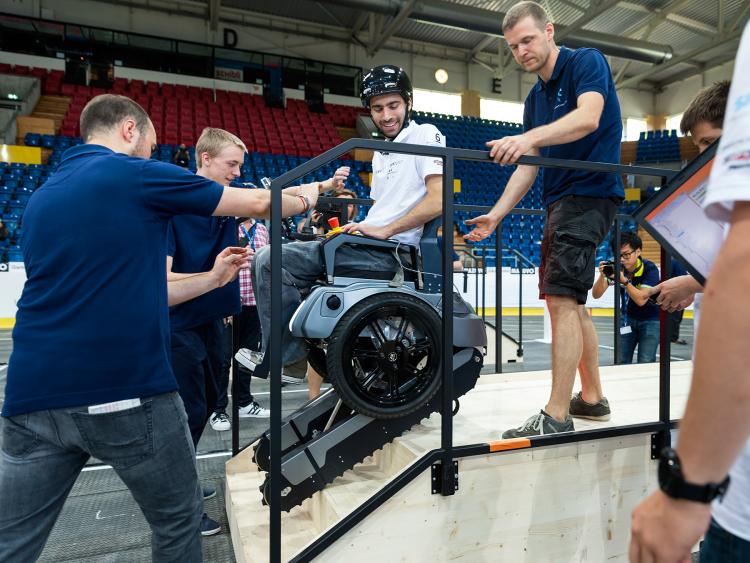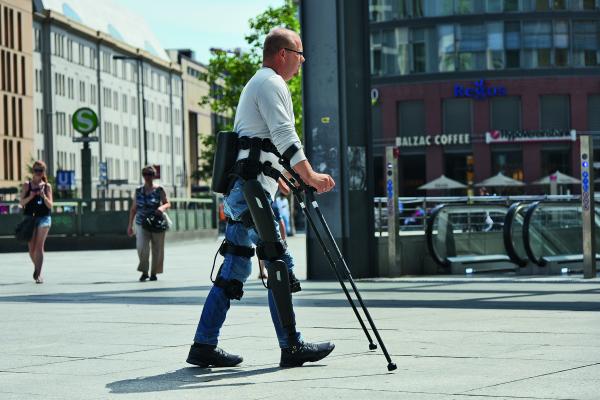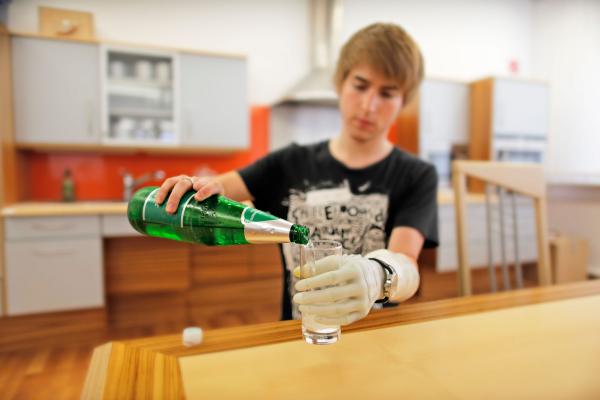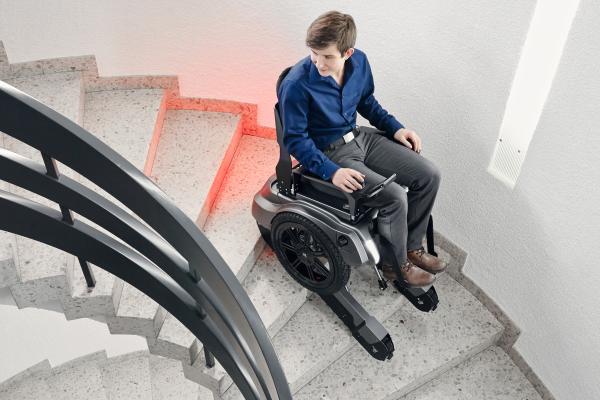Robert Riener, what did you want the Cybathlon to achieve?
Our aim was to present the results of our research to a wider public and, at the same time, to raise awareness for the needs of people with physical disabilities. Unfortunately, many people know very little about the challenges faced by people with disabilities and the limitations of modern assistive technologies. With the Cybathlon, we hope to change this and break down barriers.
What difficulties are involved in developing electrically powered aids?
The main problem is that engineers do not have enough contact with disabled people or with doctors and therapists. This means that they are not aware of the actual needs. As a result, the products they develop often miss the point, and the functionality and acceptance levels of new devices end up being unsatisfactory.
And from a technical perspective?
The power-to-weight ratio represents the main challenge. A stable wheelchair is automatically heavier. The same thing applies to exoskeletons. For a wearer to move about freely for an entire day, the battery has to be very powerful. But this means that it is also large and heavy.
Does this cause problems for the actuators?
The actuators need a very good power-to-weight ratio so that they can generate the powerful forces needed for body movements, while the devices remain small and easily wearable. This also means that they must be highly efficient, which in turn helps to keep the amount of heat generated to a minimum. This is important for the user's comfort and safety.
What is the current status of research into powered assistive systems?
The technology is now relatively advanced. For example, some prosthetic legs allow users to walk faster than a person with two real legs can. But these prostheses can only be used for very specific movements. You cannot sit down or drive a car while wearing one. Most aids have major deficiencies when it comes to everyday functions. This is where the idea for the Cybathlon came in. It involves systems which provide disabled people with help where they most need it – in everyday life.
What do you think the research situation in this area will be like in ten years' time?
Assistive systems will be more powerful and more robust. They will also provide a wider range of functions. This is the only way that systems can gain acceptance among a wide range of users and have a chance of commercial success. It will also be possible to incorporate many types of system, such as exoskeletons and muscle stimulators, into clothes. This will make the technology more comfortable and more aesthetically appealing, which will also increase its acceptance even further.

The Cybathlon
Professor Robert Riener is the inventor and organizer of the Cybathlon games that took place on October 8, 2016 in the Swiss Arena in Zurich. Around 80 teams from all over the world participated. The machine-assisted competitors compete against one another in six disciplines: prosthetic legs, prosthetic arms, exoskeletons, motorized wheelchairs, bicycles with muscle stimulation, and virtual racing using thought control.
What's disallowed at the Paralympics is more than welcome at the Cybathlon: the use of state-of-the-art technology. Both athletes and developers can win medals. As Robert Riener explains: “Our aim with the Cybathlon is to break down barriers between the general public, people with disabilities, and scientists.”
The second installment of the event takes place on November 13 – 14, 2020 – globally and in a new format, at the teams’ home bases. They will set up their infrastructure for the competition and film their races. From Zurich, the competitions will be broadcast through a new platform in a unique live program. At the CYBATHLON 2020 Global Edition, pilots and their development teams will show what they have achieved together over the past years and will offer the spectators an unforgettable competition experience.
maxon supports the event as a Presenting Partner globally.
More information on: cybathlon.com




